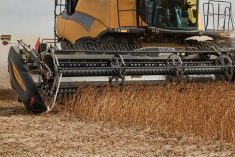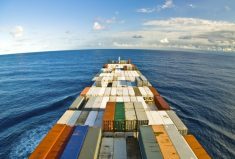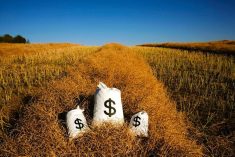Chicago | Reuters — Flooding and severe winter weather in the U.S. Midwest will reduce Archer Daniels Midland’s first-quarter operating profit by US$50 million to $60 million, the U.S. grains trader said on Monday.
Record floods have devastated a wide swath of the farm belt across Iowa, Nebraska, South Dakota and several other states. The waters have idled ethanol plants, slowed rail shipments of agricultural products and swamped storage bins holding grain from previous harvests.
The disruptions come as the U.S. agriculture industry is grappling with the trade war between Washington and Beijing, which slashed shipments of U.S. farm products to China.
Read Also

U.S. grains: Corn sets contract lows on expectations for big US crop
Chicago Board of Trade corn futures set contract lows and soybean futures sagged on Friday on expectations that beneficial weather for U.S. crops will lead to bumper harvests, analysts said.
For ADM, the floods are affecting two crucial business units; origination, which buys, stores and transports grains, and carbohydrate solutions, which mills corn and wheat, the company said. The US$50 million to $60 million impact on pre-tax operating profit will be roughly equal between the segments, with minor impacts to other units, ADM said.
“Extreme winter weather has affected our first quarter North American operations beyond what we would experience in a typical winter,” ADM said.
With rail lines washed out, and corn in storage flooded, production of ethanol has declined.
ADM’s corn processing complex in Columbus, Neb. was idled due to flooding and is running at reduced rates, the company said.
Unfavourable conditions on U.S. rivers since December are also severely limiting barge transportation movements and port activities, according to ADM.
Key rivers were swollen from flooding and ice buildup.
— Reporting for Reuters by Tom Polansek.















